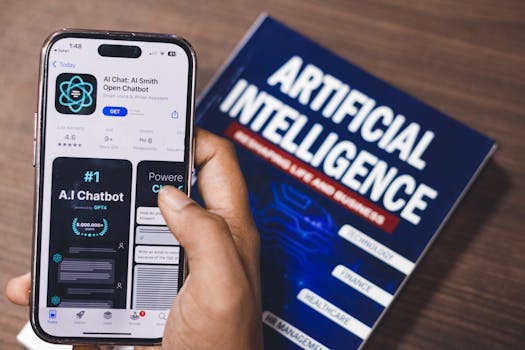
Technological Innovations Shaping 2025: A New Era of Progress
Technological Innovations are transforming the world at an unprecedented pace, and 2025 is expected to be a landmark year for these advancements. From Artificial Intelligence (AI) and the Internet of Things (IoT) to 5G networks and quantum computing, various technologies are set to revolutionize numerous industries and aspects of our lives. In this article, we will explore the key technological innovations that will shape 2025 and beyond.
Artificial Intelligence (AI)

AI has been making waves in recent years, and its impact is expected to be even more significant in 2025. With the ability to learn, reason, and interact with humans, AI is set to transform industries such as healthcare, finance, and transportation. For instance, AI-powered chatbots will become more prevalent in customer service, while AI-driven analytics will help businesses make data-driven decisions.
Internet of Things (IoT)

The IoT refers to the network of physical devices, vehicles, and other items that are embedded with sensors, software, and connectivity, allowing them to collect and exchange data. In 2025, the IoT is expected to play a crucial role in shaping various industries, including manufacturing, logistics, and smart cities. With the help of IoT, businesses will be able to optimize their operations, improve efficiency, and reduce costs.
5G Networks

The rollout of 5G networks is expected to be a game-changer in 2025. With speeds that are significantly faster than its predecessor, 4G, 5G will enable seamless communication, faster data transfer, and lower latency. This will have a profound impact on industries such as telecommunications, entertainment, and education, enabling new use cases such as remote healthcare, virtual reality, and enhanced online learning experiences.
Quantum Computing

Quantum computing is a revolutionary technology that uses the principles of quantum mechanics to perform calculations that are exponentially faster and more powerful than classical computers. In 2025, quantum computing is expected to start making its presence felt, with potential applications in fields such as cryptography, optimization, and simulation. This technology has the potential to solve complex problems that are currently unsolvable with traditional computers.
Extended Reality (XR)

XR refers to the spectrum of technologies that includes Virtual Reality (VR), Augmented Reality (AR), and Mixed Reality (MR). In 2025, XR is expected to become more mainstream, with applications in industries such as gaming, education, and healthcare. XR will enable new forms of interaction, entertainment, and training, revolutionizing the way we experience and interact with the world around us.
Blockchain and Cybersecurity

As technology advances, cybersecurity threats are becoming more sophisticated, and the need for robust security measures is becoming increasingly important. In 2025, blockchain technology is expected to play a crucial role in enhancing cybersecurity, with its decentralized, immutable, and transparent nature making it an ideal solution for secure data storage and transfer. Additionally, advancements in AI-powered cybersecurity solutions will help detect and prevent threats in real-time.
Sustainability and Environmental Impact

As technological innovations continue to shape our world, it is essential to consider their environmental impact. In 2025, there will be a growing focus on sustainable technologies, such as renewable energy sources, green infrastructure, and eco-friendly manufacturing processes. Technologies such as carbon capture and utilization, as well as advanced recycling methods, will become more prevalent, helping to reduce waste and mitigate the effects of climate change.
Conclusion

In conclusion, 2025 is set to be a transformative year for technological innovations, with AI, IoT, 5G networks, quantum computing, XR, blockchain, and sustainability being some of the key areas that will shape the future. As these technologies continue to evolve and mature, they will have a profound impact on various industries and aspects of our lives, enabling new opportunities, improving efficiency, and enhancing our overall quality of life.





